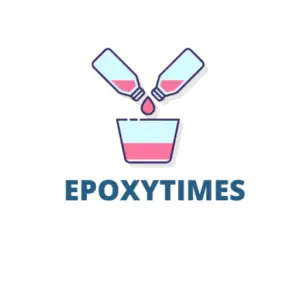Image Source: Unsplash
When it comes to flooring options, many homeowners and business owners decide between epoxy flooring and vinyl flooring. Both of these options have their own unique benefits and drawbacks, but one of the main factors that people consider is cost. In this article, we will explore epoxy flooring vs vinyl flooring cost, and provide an in-depth comparison of the two.
Understanding Epoxy Flooring
Epoxy flooring is a type of surface coating that is created by mixing a resin and a hardener. This mixture forms a rigid, durable plastic material that is resistant to wear, chemicals, and spills. Epoxy flooring has a polished, high-gloss finish that can be customized with different colors and patterns.
Epoxy floor coatings are available in a variety of types, including solid epoxy, water-based epoxy, and solvent-based epoxy. These different types offer varying levels of durability and resistance to wear and spills.
Understanding Vinyl Flooring
Vinyl flooring, on the other hand, is a type of resilient flooring that is made from a combination of synthetic materials, including polyvinyl chloride (PVC). Vinyl flooring is known for its flexibility and ease of maintenance, making it a popular choice for high-traffic areas.
There are several types of vinyl flooring to choose from, including luxury vinyl planks (LVP), vinyl sheets, and vinyl tiles. Each type offers a different look and feel, with varying levels of durability and cost.
Residential Flooring Comparison
When comparing epoxy flooring vs vinyl flooring cost for residential settings, several factors come into play.
Epoxy flooring tends to be more expensive upfront, due to the cost of the materials and the installation process. However, it offers a high level of durability and customization, which may make it a cost-effective choice in the long run.
Vinyl flooring, on the other hand, is often less expensive upfront. It offers a versatile look and is relatively easy to install and maintain. However, it may not offer the same level of durability as epoxy flooring, which could lead to higher costs over time.
Commercial Flooring Comparison
For commercial applications, the comparison of epoxy flooring vs vinyl flooring cost also depends on several factors.
Epoxy flooring is often a good choice for commercial spaces due to its durability and resistance to wear. It can withstand heavy foot traffic and is resistant to spills and stains. However, the upfront cost can be higher than vinyl flooring.
Vinyl flooring, while less expensive upfront, may not be as durable in high-traffic commercial settings. It can be prone to damage from heavy foot traffic and may require more frequent replacement, adding to the overall cost.
Factors Affecting Pricing
A number of factors can affect the pricing of both epoxy and vinyl flooring. These include:
- The quality and type of the materials used
- The complexity of the installation process
- The level of customization required (e.g., colors, patterns, textures)
- The size and condition of the space where the flooring will be installed
Comparing Long-Term Costs
When comparing epoxy flooring vs vinyl flooring cost, it’s important to consider the long-term costs as well.
Epoxy flooring may have a higher upfront cost, but its durability and longevity can make it a cost-effective choice in the long run. It’s resistant to wear and requires minimal maintenance, which can save money over time.
Vinyl flooring may have a lower upfront cost, but it may not last as long and could require more frequent replacement. This could add to the overall cost over time.
Installation and Maintenance
The installation process for epoxy flooring involves preparing the surface, mixing the epoxy resin and hardener, and applying the mixture to the surface. This process requires skill and expertise, and is often best left to professionals.
Vinyl flooring is generally easier to install, but it still requires careful preparation of the surface. It can be installed over many types of existing floors, which can save time and money.
In terms of maintenance, epoxy flooring is easy to clean and resistant to stains and spills. Vinyl flooring is also easy to maintain, but it may require more frequent cleaning and can be damaged by harsh chemicals.
Customization and Design Options
Both epoxy and vinyl flooring offer a wide range of customization options. Epoxy flooring can be customized with different colors and patterns, and you can even incorporate logos or other designs. Vinyl flooring is available in a wide range of styles, colors, and patterns, so you can find a look that fits your style.
Case Studies and Testimonials
There are many case studies and testimonials available that highlight the benefits of both epoxy and vinyl flooring. These real-world examples can provide valuable insights into the performance and cost-effectiveness of each type of flooring.
Conclusion
When comparing epoxy flooring vs vinyl flooring cost, there are many factors to consider. While epoxy flooring may have a higher upfront cost, its durability and longevity can make it a cost-effective choice in the long run. Vinyl flooring may be less expensive upfront, but may require more frequent replacement and maintenance. Ultimately, the best choice will depend on your specific needs and budget. To help make your decision, consider consulting with a flooring professional who can provide expert advice and guidance.



